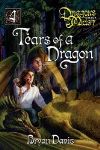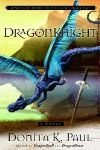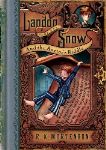Young Readers and the Allure of Fantasy - Part I

What is it about fantasy that draws our youth en masse?
Many a reluctant reader has spent hours curled up with headphones listening to Tolkien’s "Lord of the Rings Trilogy" on CD, despite the difficult language. Children all over the world still declare "The Chronicles of Narnia" their favorite book series years after the first release of "The Lion, the Witch, and the Wardrobe" in 1950.
"Harry Potter and the Sorcerer’s Stone" was the first children’s book to hit the best-seller’s list since "Charlotte’s Web" in 1952, and "Harry Potter and the Goblet of Fire" sold an astonishing 3 million copies in the USA in one week. Some parents even camped outside bookstores to guarantee a copy for their child.
On the big screen, fantasy flicks have dominated sales for the last several years. Beginning in 2001, with "Harry Potter" and "Lord of the Rings," ranked number one and two respectively, a fantasy film has held the first or second position every year since, with the except of the year 2004, when "Shrek 2" and "Spider-Man 2" reigned.
"The Chronicles of Narnia: The Lion, the Witch and the Wardrobe," which released to DVD on April 4, 2006 ranked second in '05 for top box office sales, followed closely by "Harry Potter and the Goblet of Fire."
Why has fantasy made such a strong impact on our culture in recent years? Is it simply a response to marketing or does the phenomenon go deeper?
“I believe God has instilled in us a craving, a deep desire to run with Him on a fantastic adventure, yet many of us crawl along in life without even a glimpse of our hidden passion,” says Davis. “There has to be a reason for living. There must be a Camelot, a hidden Utopia where we can rest from our personal campaigns. Fantasy opens our eyes to a better place, a shining city we do not yet know. And these stories provide a mental bridge to that city as we pursue horizons we could never distinguish with our physical eyes.”
Davis believes that young people are especially attuned to fantasy’s allurement. “Boys and girls, still unjaded and brimming with ideals, feel their God-given programming. … When a young man watches a wide screen and sees a hero draw steel from scabbard, displaying a bright sharp sword as his biceps bulge, the boy feels valor, the bravery of a knight. He becomes the champion he has never been, copying the role model he may have never witnessed in real life. … When a young lady sees a heroine … crash a jar over the villain’s head to save her fallen hero, a girl’s heart leaps. The courageous helpmate has used whatever strength she had, at risk of her own life, to prevent disaster. Without her, all would have been lost.”
Davis, who began writing fantasy when his teenage son told him that if he wanted to reach today’s youth he needed to publish within the genre, writes, in part, to help kids see that they can be heroes (or heroines) for God. He hopes to illustrate what it means to follow God in faith and obedience, stepping out and conquering life through faith, hope, and love.
“Fantasy stories open our eyes to an unseen world and train our minds to see beyond the visible. In the New Testament context, this is where our real battles are fought,” says Davis. “Good fantasy will reveal the hidden powers of evil that threaten the hero’s life and upset his journey. Good fantasy focuses on how a hero finds victory when he learns that he can’t win by himself, so he submits to the higher power in faith and obedience.”
Davis agrees. “Children these days who ride in SUVs might not relate to stories about camels. And their parents buy fish at the supermarket, so they might never realize what it means to cast a net to gather in a harvest from the sea. These symbols might be foreign and strange. But if we give them illustrations they can relate to, we can use them to hearken back to the Scriptural stories.
“For example, in 'The Lord of the Rings,' we see Gandalf standing at the bridge, using the power of light to prevent the evil beast from crossing to attack the others. As the kids say ‘Wow!’ it is so easy to then point to a Bible reference and say, ‘You know, in a similar way, the Holy Spirit protects us from evil powers we can’t see.’”
Davis, Paul, and Mortenson agree that one of the greatest strengths of fantasy is its ability to illustrate the spiritual, unseen world. “This world around us is not all there is,” says Mortenson. “There is another world, God's eternal kingdom, which is so much greater than what we see here. There is an ongoing spiritual battle between good and evil, and we experience tension because of this battle even in seemingly small and subtle things. The Tempter is real, though we do not see him. The powerful presence of good from God is also real. Fantasy allows us to show these invisible powers in a more visual, concrete way.”
Response to these fantasy books, written with a Christian worldview, would seem to verify their value in sharing Christ with today’s youth. The "Dragons in Our Midst" series has prompted messages from young readers citing everything from simple encouragement in the Christian faith to conversion to Christ and prevention of suicide and depression. Paul has also received such feedback, including one young reader who said reading "DragonSpell" helped her “stay in church” and kept her from “returning to old habits.”
Still, some Christians have concern about this genre that has taken our youth by storm in the last several years. Part II of “Young Readers and the Allure of Fantasy” will explore some of these concerns as well as give parents food for thought when determining which fantasy books are appropriate for their young reader.
A homeschooling mother of four, Paula Moldenhauer is passionate about God's grace. Published over 300 times, she’s recently released two novels: Titanic: Legacy of Betrayal and Postmark: Christmas. Her website offers homeschooling and parenting articles, devotionals, and information about her books. www.paulamoldenhauer.com Contact Paula: Paula@soulscents.us
For kids’ book reviews of the books mentioned and interviews with the authors, please visit:
https://writebrothers.blogspot.com/2006/03/nick-11-raising-dragons-by-bryan-davis.html;
https://writebrothers.blogspot.com/2006/03/landon-snow-and-auctors-riddle-book.html,
https://www.soulscents.us/sarahsays.htm and
https://writebrothers.blogspot.com/2006/03/interview-with-author-bryan-davis-i.html.
Originally published April 06, 2006.







